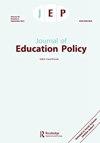Does public consultation affect policy formulation? Negotiation strategies between the administration and citizens
IF 3
2区 教育学
Q1 EDUCATION & EDUCATIONAL RESEARCH
引用次数: 0
Abstract
While public consultation is a signature process of democratic policy formulation, many governments manoeuvre to refract citizen’s opinions or conduct it perfunctorily. Using the case of a medium of instruction policy in Hong Kong, this article unveils the strategies that the state and citizens employ to put their opinion through to the final policy text, during a public consultation process. Recent literature has identified the mechanisms through which individual actors or organisations contribute to broad policy agenda-setting or policy programme development. However, yet to be investigated is how they – sometimes with conflicting interests – collectively negotiate a policy with the state via public consultations. This paper investigates this very phenomenon, building on previous work conducted in the public policy field, analysing 51 government-generated documents through both thematic content analysis and critical discourse analysis. The paper uncovers four strategies adopted by administrations (non-commitment, case closure, disengagement for irrelevance, and placation) to evade citizens’ equity-oriented demands and stakeholders’ three counter strategies (mobilising other stakeholders into a coalition, reopening the case pointing out a new problem, and appealing by affirming relevance). The state’s discrete refusals and stakeholders’ conjoint reengagement tactics draw our attention to the complexity and subtlety involved in negotiation via public consultations.公众谘询会否影响政策制定?政府与市民之间的谈判策略
虽然公众咨询是民主政策制定的一个标志性过程,但许多政府都在巧妙地折射公民的意见或敷衍。本文以香港的教学媒介政策为例,揭示了在公众咨询过程中,国家和公民将他们的意见纳入最终政策文本的策略。最近的文献已经确定了个体行为者或组织为广泛的政策议程制定或政策方案制定做出贡献的机制。然而,尚待调查的是,它们(有时存在利益冲突)是如何通过公众协商与国家集体协商一项政策的。本文基于先前在公共政策领域开展的工作,通过主题内容分析和批评话语分析,分析了51份政府生成的文件,研究了这一现象。本文揭示了政府采取的四种策略(不承诺、结案、脱离无关和安置)来逃避公民以公平为导向的要求和利益相关者的三种应对策略(动员其他利益相关者结成联盟、重新启动案件并指出新问题、通过确认相关性来呼吁)。国家的离散拒绝和利益相关者的联合再接触策略使我们注意到通过公众协商进行谈判的复杂性和微妙性。
本文章由计算机程序翻译,如有差异,请以英文原文为准。
求助全文
约1分钟内获得全文
求助全文
来源期刊

Journal of Education Policy
EDUCATION & EDUCATIONAL RESEARCH-
CiteScore
8.10
自引率
8.00%
发文量
25
期刊介绍:
The Journal of Education Policy publishes original, critically and theoretically informed research that discusses, analyses and debates policymaking, policy implementation and the impact of policy at all levels and in all facets of formal and informal education. The journal is interested in analysis and theorisation of policy that is transposable, that has generic interest and relevance - national policy case studies would need to be conceptually and/or methodologically generalisable. The journal also publishes work that presents new methods of research and research studies that are experimental and innovative. The journal offers a forum for theoretical debate, as well as historical, philosophical and comparative studies, across different countries, contexts and levels of education. A valuable resource for academics, researchers, educators and policy makers, Journal of Education Policy provides rigorous and original insights into educational policy development, implications and global impact.
 求助内容:
求助内容: 应助结果提醒方式:
应助结果提醒方式:


